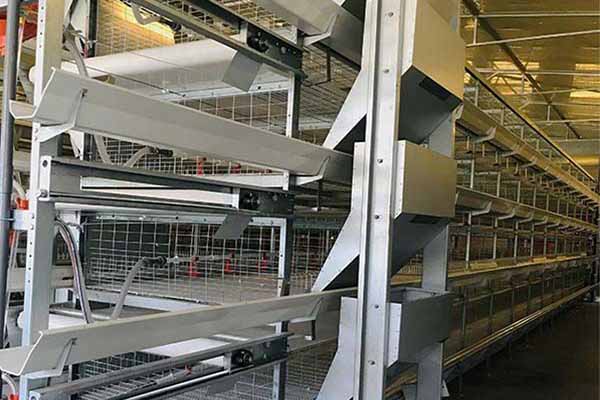How to Choose Automatic Temperature Control Equipment for Uganda Chicken Farms
Time : 2025-04-27
Are you a chicken farmer in Uganda looking to step up your game? If so, you’ve come to the right place. Temperature control is crucial in poultry farming, and the right equipment can make all the difference. In this article, we’ll dive into how to choose the perfect automatic temperature control equipment for your Uganda chicken farm. So, let’s get started!
1. Understand Your Needs
Before jumping into the market, it’s important to understand your needs. Here are some questions to ask yourself:
– What’s the size of your chicken farm?
– What’s the average temperature in your region?
– Do you need to control temperature indoors or outdoors?
– Are there any other specific requirements or constraints?
Answering these questions will help you determine the type of equipment you need.
2. Types of Automatic Temperature Control Equipment
There are various types of equipment available for temperature control in chicken farms. Let’s explore some of the most popular ones:
a. Thermostats
Thermostats are essential for maintaining a constant temperature in your chicken coop. They automatically turn on and off the heating or cooling system based on the set temperature.
When choosing a thermostat, consider the following factors:
– Accuracy: Ensure the thermostat has good accuracy to maintain the desired temperature.
– Ease of use: A user-friendly interface can make your life easier.
– Compatibility: Check if the thermostat is compatible with your existing equipment.
b. Climate Controllers
Climate controllers are more advanced than thermostats. They not only control temperature but also humidity and CO2 levels.
Here are some things to keep in mind when selecting a climate controller:
– Range: Ensure the controller can handle the temperature and humidity ranges required for your chicken farm.
– Customization: Look for features that allow you to customize settings based on your specific needs.
– Connectivity: Some controllers come with remote monitoring and control options, which can be quite handy.
c. Humidity Control Systems
Humidity is equally important as temperature in chicken farming. Excess humidity can lead to respiratory issues in your birds, while low humidity can cause discomfort and stress.
When choosing a humidity control system, consider the following:
– Evaporative Coolers: These systems use water to cool the air and reduce humidity. They are energy-efficient and suitable for tropical climates like Uganda.
– Dehumidifiers: These remove moisture from the air and maintain a balanced humidity level.
3. Quality and Reliability
Quality and reliability should be your top priority when selecting automatic temperature control equipment. Here are some tips to ensure you make the right choice:
– Research: Read reviews and ask for recommendations from other chicken farmers.
– Warranty: Choose equipment with a solid warranty to ensure peace of mind.
– Brand reputation: Go for well-known brands with a good track record in the poultry industry.
4. Installation and Maintenance
It’s crucial to consider the ease of installation and maintenance when choosing temperature control equipment. Here’s what you need to keep in mind:
– Professional installation: For complex systems, consider hiring a professional to install the equipment.
– Maintenance: Choose equipment that is easy to maintain, as regular maintenance is essential for optimal performance.
5. Budget
Lastly, don’t forget to consider your budget. While it’s important to invest in quality equipment, it’s also essential to stay within your financial limits. Look for cost-effective solutions that offer great value for money.
Conclusion
Choosing the right automatic temperature control equipment for your Uganda chicken farm can be challenging, but with the right approach, you can ensure a comfortable environment for your birds. Remember to understand your needs, explore the different types of equipment, focus on quality and reliability, and consider installation and maintenance.
By following these guidelines, you’ll be well on your way to a successful chicken farming business.












